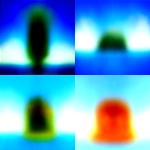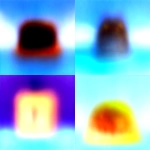Explore the Best AI Image Gallery

Quantum Innovations: The Future of Creativity and Ethical Considerations
Quantum computing represents a paradigm shift in computational capabilities, bringing forth opportunities that were once relegated to science fiction. With its power to handle vast amounts of data and perform complex calculations at unprecedented speeds, quantum computing is paving the way for groundbreaking innovations across various fields, including the creative industry.
The Rise of Quantum Computing
To understand the impact of quantum computing, it is crucial to grasp its fundamental concept. Unlike classical computers that use bits as the basic unit of data (0s and 1s), quantum computers utilize quantum bits or qubits. Thanks to phenomena such as superposition and entanglement, these qubits enable quantum computers to process information in ways that classical computers cannot.
Transforming the Creative Industry
In the realm of creativity, quantum computing opens new avenues for artists, designers, and content creators. Here are some potential uses:
- Enhanced Simulation and Modeling: Quantum computing can dramatically improve simulations used in fields like 3D modeling and animation. This can lead to more realistic graphics and intricate designs.
- Algorithmic Art: Artists can leverage quantum algorithms to generate complex patterns and forms that are computationally infeasible for classical computers. The resulting art would be unique and potentially unreplicable.
- Personalized Content Creation: By analyzing large datasets of user preferences, quantum computing could personalize creative content for individuals, enhancing user experience in advertising and digital media.
Ethical Considerations
As we navigate through the capabilities of quantum computing, it is essential to consider the ethical implications. Major concerns include:
- Intellectual Property: With AI-generated art and now quantum computing, issues regarding ownership and copyright are paramount. Who owns the rights to a piece generated by a quantum computer?
- Job Displacements: Although quantum computing could foster new types of creativity, it may also render certain jobs obsolete. Graphic designers, animators, and other creatives could face challenges as automated systems take over traditional roles.
- Data Privacy: The ability of quantum computers to process massive datasets raises questions about privacy. How will sensitive user data be managed and protected when leveraging quantum capabilities?
Future Trends
Looking ahead, several trends in quantum computing could shape the creative industry:
- Collaboration Between Artists and Scientists: As more artists become acquainted with quantum computing principles, interdisciplinary collaborations may give rise to innovative art forms and applications.
- Quantum Computing in Film Production: The film industry could greatly benefit from quantum algorithms in post-production processes, improving visual effects and rendering times.
- Interactive Experiences: Quantum computing can revolutionize gaming and interactive storytelling through real-time data processing, pushing the boundaries of what's possible in digital experiences.
Conclusion
Quantum computing stands at the crossroads of technology and creativity. Its breakthroughs may reshape entire industries, including art and design. However, with these advancements come ethical considerations that must be addressed to ensure a responsible and inclusive approach to innovation. As quantum technology continues to develop, it will be fascinating to witness its integration within the creative world and how it can coexist with our societal values.

](https://images.ai-img.art/thumbnails/150/436f6ba43486e74036bdddb4cf7a1d813975ad7387597ac869e49f718159fdf9.webp)



